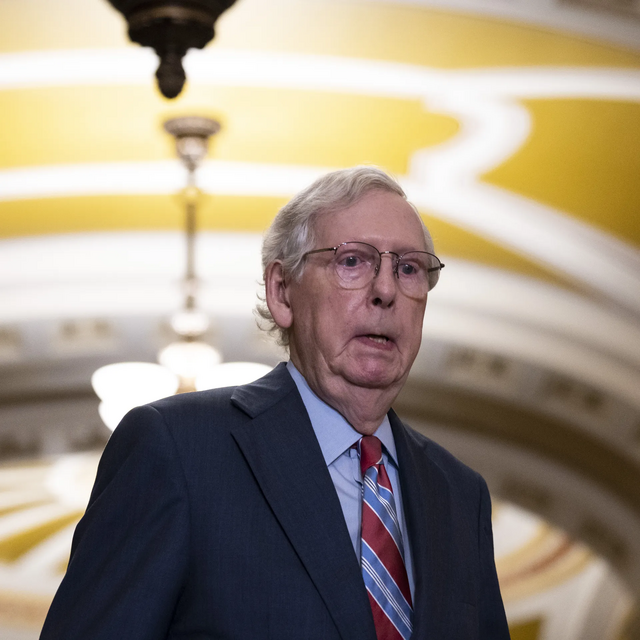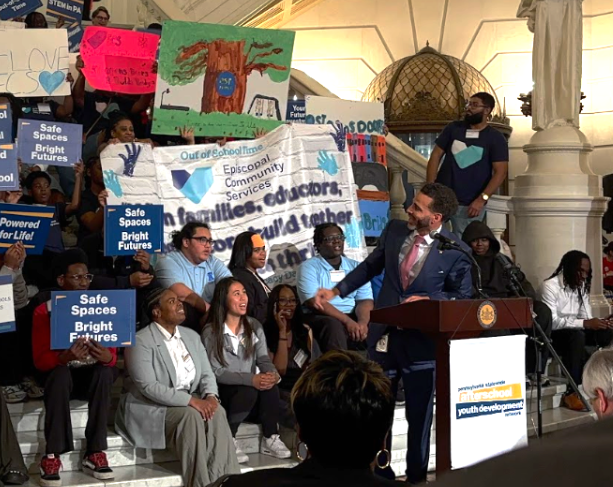Pro/Con: Should there be an age limit on elected positions?

If there is one thing that people on both sides of the aisle can agree on, it’s that a lot of our politicians are old. While I have nothing against the elderly, it seems that age is beginning to catch up with many of them in the worst ways.
For example, Sen. Mitch McConnell has frozen up while speaking twice this year and has fallen at least three times. Sen. Dianne Feinstein was also recently hospitalized after falling. She is the oldest senator at 90 years old, an age where many are focused on creating a will instead of solving national issues. Also, President Joe Biden’s age has been a constant concern ever since he took office.
At this rate, Senate meetings will have to be over by 3 p.m. for the early bird special, and the president will have to incorporate a nap into his daily schedule.
The country needs to create an age limit for elected positions in the U.S. government.
According to a study by the National Institute of Health, the rate at which the human brain declines due to age is accelerated around 70 years old. In Congress alone, over 25 percent of members are over 70. That’s a lot of people who may not be cognitively fit to handle the critical thinking and problem solving required to make important decisions.
It’s scary to think about the future of the country being in the hands of people who possibly should be in an assisted living facility. If they can’t even take care of themselves, how can they take care of us?
Having an age limit would ensure that elected representatives can handle the responsibilities and strains of running the country. Younger people are significantly less likely to have mental episodes while doing their jobs.
The country also needs younger people in offices for fresh ideas, perspectives, and peace of mind that the people chosen to make decisions are mentally fit to do so. This policy would likely allow for greater representation of millennials and eventually members of Gen Z in our government, breaking the cycle of gerontocracy.
Younger elected representatives also would be beneficial in an age of evolving societal changes and technological advancements. Everyone knows that despite their best efforts, older people cannot compete with younger generations when it comes to understanding technology.
The same can be said for new societal changes, such as tackling climate change, LGBTQ+ rights, and education reform. These are topics that young people are more passionate about or have personally experienced more recently than older generations.
Being able to make decisions based on personal experiences or with more thought on the impact to younger generations would help the government make decisions more reflective of the issues faced by today’s young people. Having an age limit for elected officials would keep the U.S. government diverse, capable, and fresh to take on the emerging challenges in an ever changing world.
As the age of politicians in office seemingly rises with every election, debate grows as to whether an age cap should be placed on candidates. Such a restriction seems beneficial, with the goal being to bring in new politicians, but the idea is short-sighted in terms of the unintended consequences.
Historically, several presidents who are revered by many Americans have been in their 60s or older at some point in their presidency. For example, many of the founding presidents left the office while in their mid-60s.
George Washington left office at age 65, along with John Adams, Thomas Jefferson, and James Madison, his line of successors. The fifth president, James Monroe, left office slightly older, at age 66. For more recent examples, Franklin Roosevelt passed away at 63, Harry Truman left office at 68, and Dwight Eisenhower left at 70.
It would be hard to argue that any of these presidents were not cognitively capable, even during their later years in office. They were all very capable presidents with plenty of experience.
Instituting an age cap would prevent future candidates of similar age and capability from running at all, even if they were popular.
In many cases, middle-aged to older candidates have an exceptional amount of life experience and wisdom. This could be a reason why older candidates are as popular as they are.
If the public didn’t want candidates as old as they are now, they could simply choose not to vote for them. However, Donald Trump at 77 and Joe Biden at 80 are seemingly the favored presidential candidates for their respective parties.
For a similar goal but more effective results, a better measure to take would be applying a mandatory cognitive test to presidential candidates with publicly available results. This would allow older candidates to run while eliminating the fear of them being incapable of properly serving the office.













